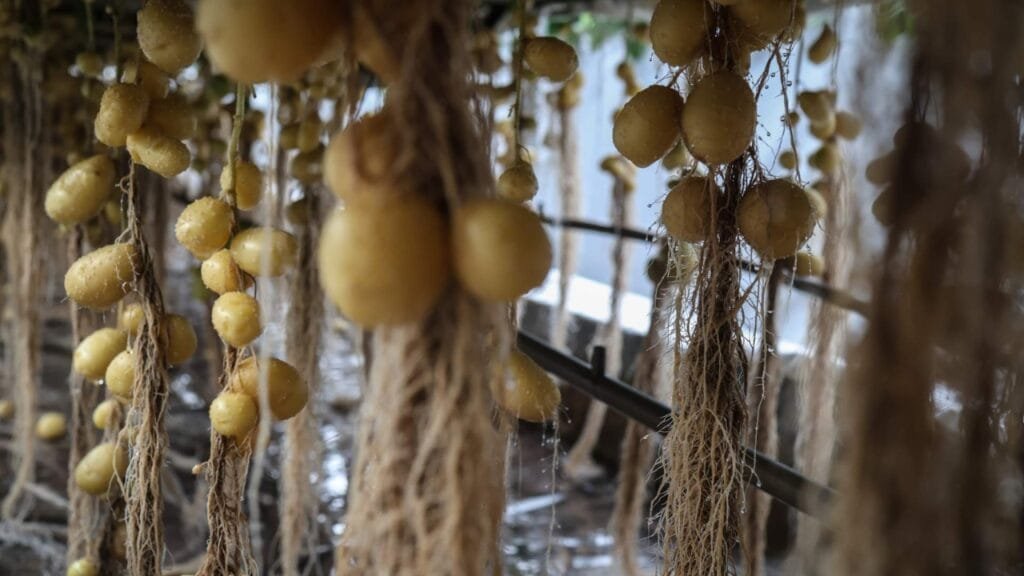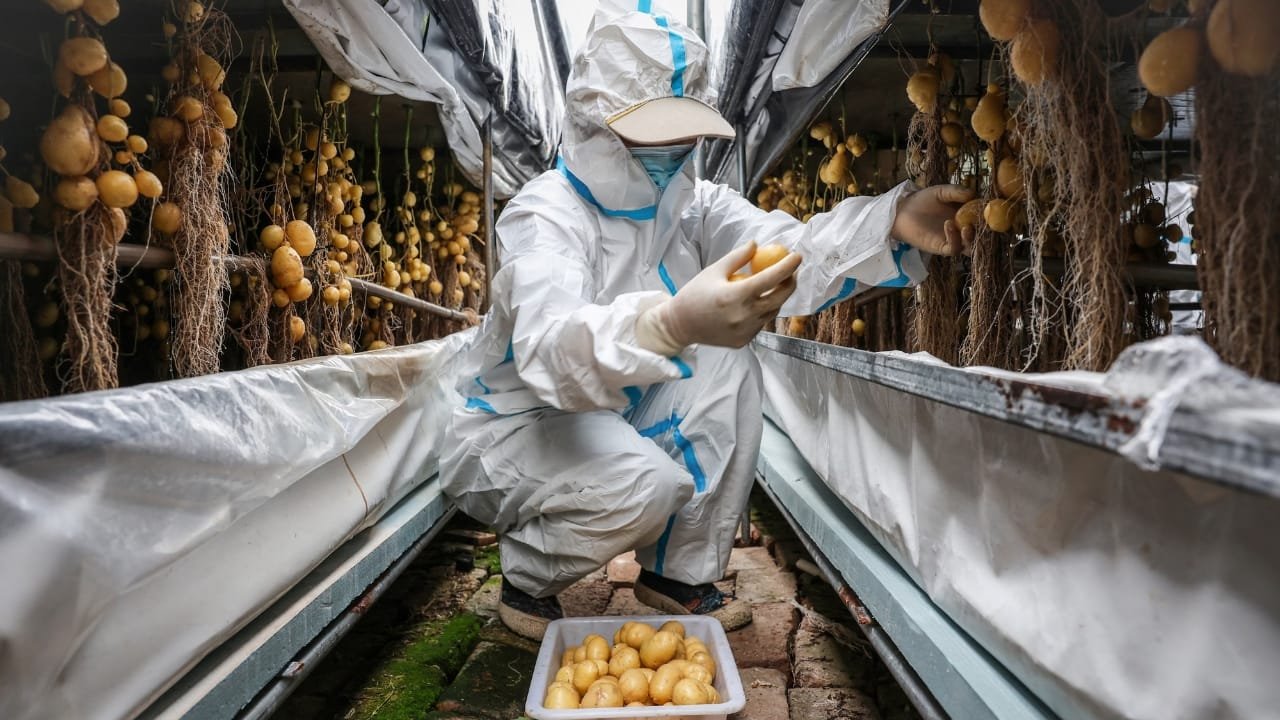One of the crops most affected is the very humble potato, while global food security threatens in light of the surging danger of climate change. Chinese scientists are, with speed, racing to create heat-tolerant varieties of potatoes to shelter this critical crop from climate disruption and rising temperatures. And the future of potato farming is becoming increasingly bleak, first in China but all over the world.
The Growing Threat: Climate Change and Potato Yields
With the rising global temperature, climate change is not a problem in the distant future; it is an urgent issue that directly affects the production of agriculture, mainly for staple crops such as potatoes. In China, researchers have found that increasing temperatures are dramatically reducing potato yields, threatening both local and international food security. Researches conducted at the International Potato Center in Beijing indicated that potatoes, when subjected to warmer conditions, such as those envisioned for future climate scenarios, yield far fewer crops. The crops were less than half their expected weight in ideal conditions.
A three-year study led by molecular biologist Li Jieping produced alarming statistics: potatoes grown in regions like Hebei and Inner Mongolia under temperatures just 3°C above the current average showed a drastic yield reduction of more than 50%. The accelerated growth of the potatoes under such conditions was seen to come at the expense of crop size and weight, constituting a significant challenge to food security in China as potatoes are one of its staple foods and an essential component of global food production.
Also Read: ISRO Deploys Satellites to Track Cyclone Fengal Heading Towards Tamil Nadu
A Deepening Crisis for Potato Farmers
Farmers in various parts of China, especially northwestern Inner Mongolia, have already started experiencing direct manifestations of climate change. Heavy rainfall with no clear patterns has marred harvesting times. Hebei Jiuen Agricultural Development Company manager Wang Shiyi revealed that heavy rainfall this season delayed the potato harvest so much that it left the farmers way behind schedule.
Apart from extreme weather events, the increase in temperatures also contributes to the increase of crop diseases. According to Li Xuemin, the general manager at Yakeshi Senfeng Potato Industry Company, diseases such as late blight are becoming resistant to traditional control methods because they thrive in warm and humid conditions. Changes are making it difficult for farmers to keep healthy crops, further complicating the task of ensuring stable food production.

The Need for Climate-Resilient Potato Varieties
Chinese scientists are relying on novel agriculture practices and advanced technology to engineer potatoes that can survive the challenges of climate changes. The breeding of heat-tolerant, disease-resistant potatoes will focus on advanced techniques such as aeroponics and genetic research.
In Yanqing, a district in Beijing, a research facility is propagating potato plantlets in controlled environments to develop varieties that can thrive under warmer temperatures and resist diseases becoming more prevalent due to the changing climate. Such research is critical to ensuring the stability of China’s potato supply despite the growing threat of climate-related disruptions.
Adaptation and Future Prospects for Chinese Potatoes
While breeding more resilient varieties is crucial, researchers are of the opinion that agricultural practices would have to undergo changes in the years ahead. Li Jieping, who is spearheading this research, feels that adjusting planting seasons and moving cultivation to higher altitudes can reduce some of the loss caused by the soaring temperature. However, farmers would have to change swiftly and invest in new technology and practice.
It is expected that, at least within the next ten years, farming systems should dramatically change in response to the continued effects of climatic change. It means that not only would plantings have to shift geographically and timewise, but also the implementation of water management techniques should reflect erratic rainfall.
The Global Implications of Potato Shortages
The impact of climate change on potato production in China has global implication. China is the world’s largest potato producer, and a significant decline in production could lead to higher global potato prices, thereby affecting consumers around the globe. Additionally, economic and livelihood loss for tens of millions of Chinese farmers may have a more general socio-economic destabilizing effect in the background, especially in rural areas where potato cultivation is a main purpose.
Rising temperatures make the world’s food economy more vulnerable to the effects of climate change, but nowhere is this threat as pertinent as it is to one of the globe’s most valuable food crops: the potato. These China-based efforts to devise heat-resistant and disease-resistant cultivars are also important in overcoming the short-term and long-term challenges that potato producers currently endure.
Also Read: Lithium Mining’s Potential Environmental Impact on Water Quality: Key Findings from Recent Study
Conclusion: Protecting the Potato Crop for the Future
The fight over climate change is heating up, and researchers in China are leading the charge into the battle for one of the world’s most critically important food crops. Potatoes face many challenges resulting from rising temperatures, less predictable weather patterns, and crop diseases-all of these threaten both regional and worldwide food security. But still, through innovation in scientific research, adaptations in farmland, and genetic improvement, there could be alternatives to ensure a future for growing potatoes.
The increasing impact of climate change on agriculture is expected to necessitate even greater demands for climate-resilient crops. In China, work being done to protect food supplies in local areas is also essential to ensure the stability of the global potato market as climate change accelerates.

